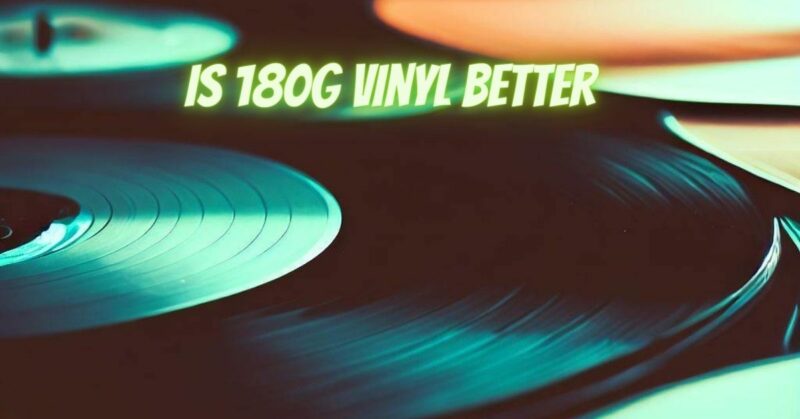The allure of vinyl records lies in their tactile appeal and warm sound quality, and within this realm, the weight of the vinyl itself has become a subject of fascination. Among various vinyl weights, the 180g vinyl has gained significant attention, often touted as a mark of superior quality. In this article, we dive into the debate surrounding 180g vinyl, exploring its benefits, considerations, and whether it truly delivers an enhanced vinyl listening experience.
Understanding Vinyl Weight
Vinyl records come in different weights, often measured in grams per square inch (gsm) or grams per record (g). The standard weight for most vinyl records is around 140-160g. 180g vinyl, on the other hand, is noticeably thicker and heavier.
The Case for 180g Vinyl
Proponents of 180g vinyl claim several potential advantages:
- Durability: The thicker vinyl is less prone to warping and damage, which can be especially beneficial for collectors who wish to preserve their records.
- Reduced Surface Noise: The added weight might contribute to improved stability during playback, resulting in reduced surface noise and a potentially cleaner sound.
- Better Pressing Quality: Some argue that the added weight provides more even pressure during pressing, potentially leading to better sound quality and fewer imperfections.
- Enhanced Packaging: 180g records often come with more elaborate packaging, including gatefold covers and extra inserts, adding to the overall aesthetic experience.
Considering Other Factors
While 180g vinyl offers potential advantages, it’s important to recognize other key factors influencing vinyl sound quality:
- Mastering Quality: The quality of the audio mastering and the source material have a significant impact on sound quality. A well-mastered record will sound good regardless of its weight.
- Pressing Quality: A well-pressed standard weight vinyl can provide excellent sound quality. Conversely, a poorly pressed 180g record might still suffer from surface noise and sonic issues.
- Playback Equipment: The quality of your turntable, tonearm, cartridge, and stylus plays a crucial role in sound quality. High-quality equipment can elevate the performance of any vinyl record.
- Groove Density: The density and depth of grooves, rather than just the thickness of the vinyl, impact the audio fidelity.
Balancing Expectations and Experience
Whether 180g vinyl is “better” largely depends on individual preferences and expectations. Some listeners appreciate the weight and sturdiness of 180g records, while others prioritize mastering and pressing quality. It’s crucial to keep in mind that a well-mastered and well-pressed standard weight vinyl can still provide an exceptional listening experience.
The debate over 180g vinyl’s superiority underscores the passion and attention to detail that vinyl enthusiasts bring to their hobby. While 180g vinyl offers potential benefits in terms of durability and potential sound quality improvements, it’s not a guaranteed indicator of superior audio. Ultimately, the joy of vinyl lies in the connection to music and the tactile experience, whether you’re placing a lightweight or heavyweight record on your turntable.


